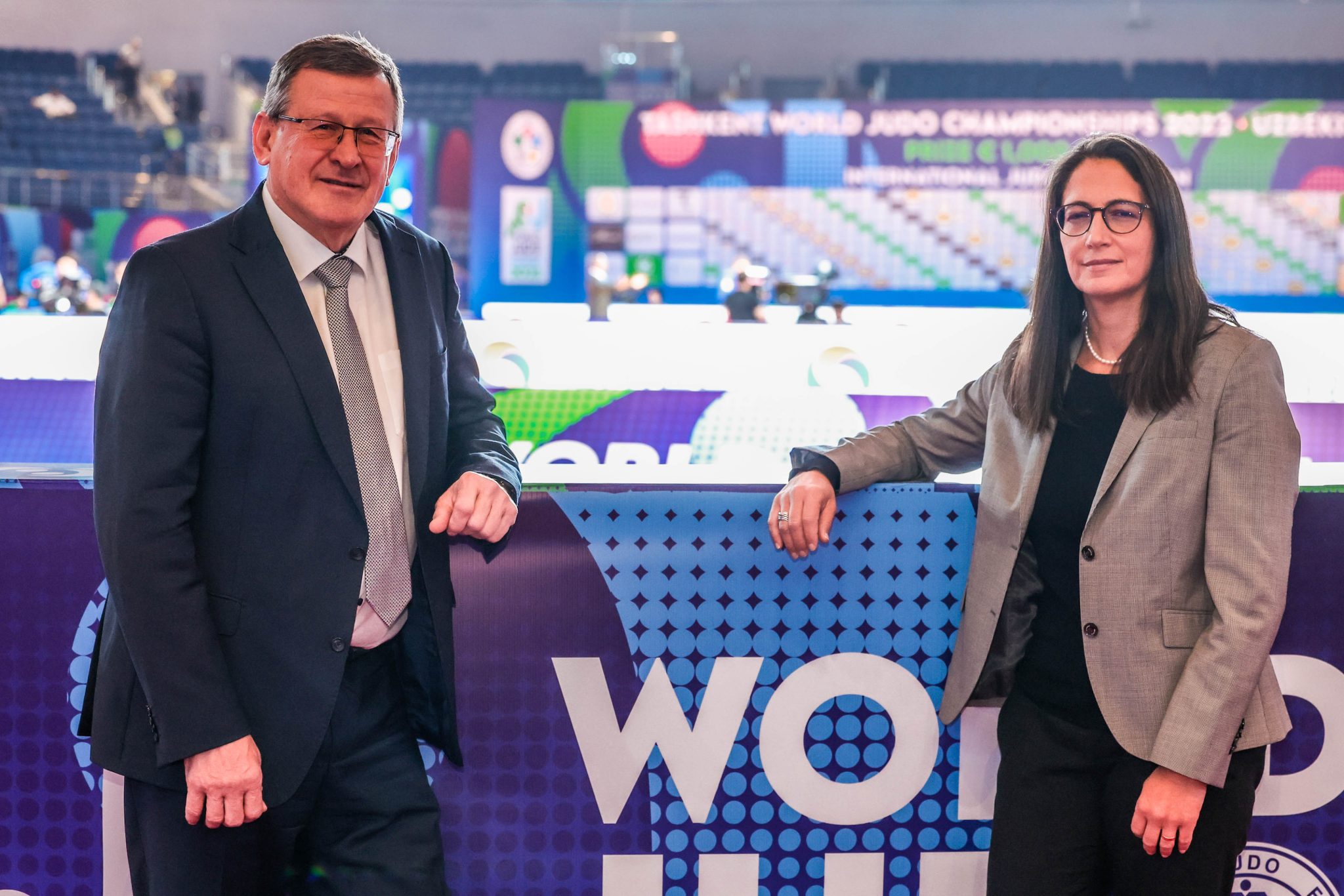The EJU Head Sport Director Catarina RODRIGUES and Head Referee Director Alexandr JATSKEVITCH, both Executive Committee members, have been assigned by President László TOTH to the World Championships in Tashkent (UZB) as official observers. They cooperated first-hand with their IJF counterparts. Before the seventh and last day of individual competition they share with us their impressions and observations.
Why is it essential to attend the World Championships in your roles as Heads of the Sport and Refereeing Departments?
Alexandr Jatskevitch: “Thanks to President Tóth we have access to all key players and get any information we need. It’s very important that the European Judo Union takes care of consistency. In sports there exist no such borders between the different continents – Judo has to be the same everywhere. This is crucial in our daily work. And talking about referees, it’s essential for me to see how IJF is dealing with difficult situations like head diving, stepping out, being pushed out etc. We are in constant exchange with coaches about these topics. Judo is always developing. You will constantly face new challenges, new athlete moves etc.”
Catarina Rodrigues: “Within the sports team we also need to unify athlete services in order to be consistent, no matter if you compete in IJF or EJU events. We focus on topics like athletes’ procedures such as time schedules, weigh-in, warm-up, FOP set-up, judogi control and sport rules. For me it is also a good opportunity to stay in close contact with the relevant European coaches.
What we always have to bear in mind is, that in EJU we don’t only have prime events such as the European Championships. Moreover we are organising a number of events like European Opens or European Cups on senior, under-23, junior and cadet level and in these events we need to adapt to a different reality.”
How would you judge the sportive level of the Tashkent World Championships?
Rodrigues: “The majority of the final block fights have been exceptional. The Grigalashvili-Casse 81kg gold medal bout was thrilling, with lots of actions, it was world-class judo at top level, the best possible promotion for our sport.”
Are you happy with the decisions of the European referees?
Jatskevitch: “You just need to see how many European referees are used each day in the final block. It’s three or four out of six. I think this is good proof that our referees are the best worldwide. We can be really proud of the their performances.”
Is IJF doing something different in comparison to EJU – and why?
Jatskevitch: “They have three supervisors per mat, 6 in total, we have five for three mats – that’s mainly a cost factor.”
Talking about sportive matters, what have you been focusing on the last couple of days?
Rodrigues: “The presentation of the final block was kind of new, having a waiting area for the medallist inside the Field of Play. I think they liked it a lot, because they could watch the other fights first row with a perfect view and be close to the public on their way to the podium. The second main topic for me was the new competition software, that was already tested in few EJU events before. This new software has a lot of potential in different areas and we are now working and discussing on a plan to implement it in EJU events.”
Did you have time to enjoy the world class judo as well?
Rodrigues: “The World Championships are always special. Until now my personal highlight was the all-Croatian -70 kg final. That was a historic moment for European judo.”
Jatskevitch: “I especially enjoy matches, when you have a lot of scores and a lot of referee actions going on. I definitely had a couple of moments, when I was really happy with the decision-making of the referees.”
Author: EJU Media




